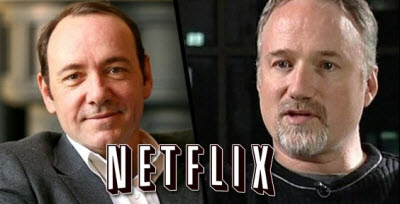Want smarter insights in your inbox? Sign up for our weekly newsletters to get only what matters to enterprise AI, data, and security leaders. Subscribe Now
 Netflix has confirmed a deal to air an original television series starring Kevin Spacey on its internet streaming service in a deal that changes the game for traditional TV programming.
Netflix has confirmed a deal to air an original television series starring Kevin Spacey on its internet streaming service in a deal that changes the game for traditional TV programming.
Under the deal, Netflix will run the “House of Cards” political drama being directed by Oscar-nominated director David Fincher as an exclusive on its streaming video service late next year. This kind of deal could turn Netflix into a premiere network much like Time Warner’s HBO or CBS’s Showtime, if Netflix continues to accumulate more programming. And that could shift the balance of power from Hollywood studios to Netflix, which was previously just one more digital distribution channel.
Netflix is gaining power because it has more than 20 million subscribers for its movie service, an audience that is closing in on the 28 million subscribers that HBO has on cable TV. Netflix is thus in a position to disrupt traditional movie and TV service providers as it consolidates power on the internet.
Ted Sarandos, chief content officer at Netflix, told the Wall Street Journal that Netflix will pay a portion of production costs for the series, with Media Rights Capital (the independent studio creating the project) financing the rest. Sarandos declined to say how much Netflix is paying for the exclusive online rights. But Netflix’s fee for production costs is capped if the show goes over budget.
House of Cards is based on a book and BBC miniseries of the same name. Sarandos said that Netflix will take advantage of the web by airing as many as four episodes at the same time so that users can immerse themselves in the content. He said, “There is no reason for us to be tied to traditional business models.”
The Wall Street Journal noted that Netflix’s move into original programs is similar to the dawn of cable TV in the 1980s, when most networks had little original content. They started creating more original programs to run exclusively on their networks to differentiate themselves. That’s how HBO, Starz, Showtime and others were born. But the model brings risks for Netflix, which doesn’t have experience producing high-quality content or picking the right shows.
Netflix’s move comes after the pay-TV networks brushed it off. HBO decided not to sell Netflix any streaming rights, and Showtime waits a couple of seasons before licensing episodes. Such strategies would have doomed Netflix to distributing old content. In response to the growing power of Netflix, I suspect that the studios and pay-TV networks will try to find digital distribution alternatives to Netflix. That could be good for emerging alternatives such as OnLive, which plans to offer movie streaming services as well.
Netflix is committed to 26 episodes.
In other news, Netflix has been hit with five lawsuits in the past two months accusing it of violating user privacy rights. The lawsuit alleges that Netflix held on to customer data such as rental habits and credit card numbers long after people had canceled their memberships.
[picture credit: hawtmag]

